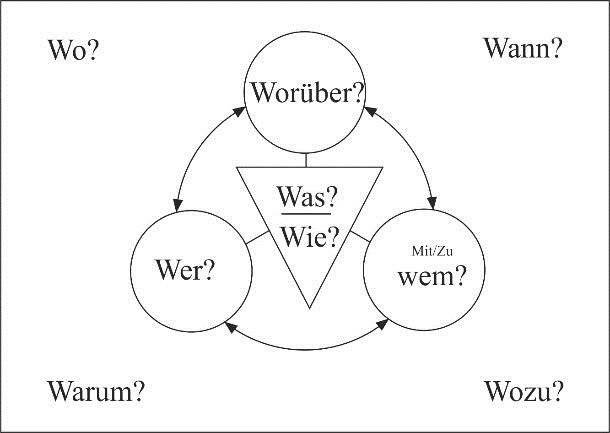Teaching pronunciation
Are GFL/GSL teachers allowed to have an accent?

Will a student’s ability to learn German be negatively affected if their German teacher has a foreign accent? How should this issue be dealt with by employers and institutions, and indeed by the teachers themselves?
An introduction to the topic by Ursula Hirschfeld
By Ursula Hirschfeld
There is no authoritative evidence, i.e. in the form of empirical studies, that adult learners who are taught by teachers with a foreign accent learn, speak or pronounce German differently to those who are taught by native speakers.
Each language institution sets its own standards and determines which skills it requires its teachers to have; however, there are certain subject-specific aspects and arguments (besides economic or marketing arguments) that can be taken into account when discussing teachers’ accents:
- Which pronunciation is good and correct?
- What is an accent?
- What are the effects of a foreign accent?
- What are the teaching and learning goals in the area of pronunciation?
- What characterizes a good teacher with respect to pronunciation teaching?
1. Which pronunciation is good and correct?
The term pronunciation encompasses two levels: the vowels and consonants and the connections between them (the segmental level), and the accentuation of words and word groups, intonation and rhythm (the prosodic or suprasegmental level). Pronunciation does not refer solely to the formation of sounds, in other words. Pronunciation skills relate not only to the way the language is pronounced, but also to the way the pronunciation is perceived; it is therefore a question both of being understood and of understanding spoken language.There is no such thing as the one good and/or correct pronunciation. We are surrounded by a large number of pronunciation variants in our everyday lives, are familiar with these to a greater or lesser extent, and will individually perceive them to be either more or less correct.
In addition to the three standard pronunciations in Germany, Austria and German-speaking Switzerland that are used in supraregional media and, for the most part, in materials for GFL/GSL teaching, we will encounter regional colloquial forms and dialects. Within these variants, ways of speaking are used whose phonetic forms differ from one another, in some cases very significantly. Pronunciation is influenced particularly strongly by the speech situation (phonostylistic variation), both in the standard language and in dialects. Depending on the situation – who is speaking with whom about what, why, where and when? – the speech tempo and articulatory tension will differ, which will result in each case in a different degree of clarity and comprehensibility:

Fig.: Speech situation model (according to Geißner 1987: 73; Hirschfeld/Reinke 2018: 141)
Besides the phonostylistic (situational) conditions, pronunciation will also change considerably on the suprasegmental (intonation, articulatory tension, speech tempo, rhythm etc.) and segmental levels (vowels and consonants) in the case of emotional speech, e.g. friendly, angry, sad or polite speech.
Pronunciation can thus be deemed good or correct, or appropriate to the situation, when it matches the norms and expectations of listeners in a particular situation.
It is therefore necessary in GFL/GSL lessons to make learners aware of the wide range of pronunciation variants that exist, and to sensitize them to pronouncing and noticing all kinds of different context- and situation-specific utterances. In this context a teacher can also talk about their own pronunciation.
2. What is an accent?
The term “accent” refers mainly to emphasis (also known as stress or accentuation) in spoken language. In the present context, however, it relates to- the way the pronunciation of a foreign language is coloured by the speaker’s native or first language: = an unfamiliar or foreign-sounding accent, e.g. a French accent when speaking German, and
- the way the pronunciation of German is coloured by the speaker’s regional colloquial language or dialect: = regional accent, e.g. a Bavarian or Saxon accent.
Regional and foreign accents can display similar phonetic peculiarities as standard pronunciations of German, and in advanced German learners it is not always possible to tell whether these are due to the speaker having a foreign or regional language background.
Typically, a foreign accent will be accompanied by grammatical, lexical and pragmatic “deviations”, thereby increasing the sense that it is “incorrect”.
If GFL/GSL teachers have a slight foreign accent but otherwise speak perfect German, this will considerably reduce or even eliminate any negative effect their pronunciation may have. In this case, the peculiarities of their pronunciation will be comparable to those of teachers with regional accents.
There are no objective criteria that can be used to measure the strength of a foreign (or regional) accent. The way it is perceived can differ very considerably because this will depend on the expectations, attitudes and experiences of the individual assessing it, and on the extent to which they are sensitive to phonetic characteristics.
3. What are the effects of a foreign accent?
A strong foreign accent can have various effects, as can a strong dialect, if the pronunciation does not match the norms and expectations of the listeners. Comprehension may be impaired, some of the information being conveyed may be lost, the intended course of the conversation may change (e.g. due to the need to ask for clarification), and the listener’s attitude towards and acceptance of the speaker may change. Studies show that a person with a foreign accent may experience deprecation and marginalization, and have problems with applications and in their work.As yet, the effects a German teacher’s foreign accent may have on learners of German have not been studied. It would probably also be very difficult in comparative studies to exclude all of the teacher’s other influential factors.
In my opinion, good methodological teaching skills (employing for example a variety of methods and showing sensitivity when correcting errors) can compensate very well for a slight foreign or regional accent.
All over the world, German is being taught by people who do not have “native speaker level” in grammatical, lexical or pragmatic terms – yet many of them do so very successfully.
4. What are the teaching and learning goals in the area of pronunciation?
Besides the higher-level teaching and learning goals that result from the descriptions of language skills at the various proficiency levels (Common European Framework of Reference for Languages) or that are associated with specific professional qualifications (German teachers, interpreters, journalists, tour guides etc.), individuals have their own motivations for learning to pronounce German (very) well, e.g. in order to study, work and/or live in a German-speaking country. Good German teachers take these goals seriously and help learners to perfect their pronunciation.This is a challenging task that requires teachers to practise pronunciation on a differentiated basis within the classroom, monitoring the different needs of their individual learners. GFL/GSL teachers with a foreign (or regional) accent can achieve this just as well as those who speak unaccented German.
5. What characterizes a good teacher with respect to pronunciation teaching?
Ideally, German teachers will meet the following requirements:they will have a comprehensive knowledge of and ability to judge the exercises on offer in textbooks and teaching material, and will be able to supplement and modify existing exercises and develop new ones;
- they will have an armoury of many different methods that allow them to intervene on a targeted basis and ensure methodological diversity and a sufficient degree of automation;
- they will respond to each German learner’s individual strengths and weaknesses when it comes to listening comprehension and pronunciation;
- they will identify and then consistently and competently correct any pronunciation errors made by learners;
- they will regularly assess learning progress in pronunciation and pronunciation proficiency in the same way that they assess other linguistic and oral capabilities;
- they will motivate learners, and will be motivated themselves.This of course also raises the question of a teacher’s function as a role model.
One advantage that German teachers who are not native German speakers often have is that they can draw on their own experience of learning how to pronounce German, i.e. they have first-hand knowledge of the difficulties involved in learning German and can provide learners with the specific support and help they need.
As a result of growing mobility and increased migration to Germany, among the GFL teachers who are working at language teaching institutions in German-speaking countries are increasing numbers of non-native-speaker teachers with excellent teaching skills and considerable intercultural and language-learning experience. This may also go hand in hand with greater acceptance of linguistic diversity in German teachers.
In my opinion, having the methodological skills to teach pronunciation is a more important factor than whether a teacher has a slight foreign (or regional) accent.
Literature
Babylonia. Themenheft Ausspracheschulung (2011): http://babylonia.ch/de/archiv/2011/nummer-2/
Literature
- Dahmen, Silvia / Hirschfeld, Ursula (2016) (Ed.): Phonetik in der Unterrichtspraxis. Fremdsprache Deutsch 55. Erich Schmidt Verlag Berlin. ISBN 978-3-503-17022-7
- Dahmen, Silvia / Hirschfeld, Ursula (2016): Phonetik in der Unterrichtspraxis. In: Dahmen, Silvia / Hirschfeld, Ursula (2016): Phonetik in der Unterrichtspraxis. Fremdsprache Deutsch 55. Erich Schmidt Verlag Berlin, 3-9.
- Geißner, H. (1987): Sprechwissenschaft. Theorie der mündlichen Kommunikation. Königstein/Frankfurt a. M.
- Krech, E.-M. u.a. (2010): Deutsches Aussprachewörterbuch. Berlin / New York.
- Hirschfeld, Ursula (2018): Aussprachenormen und ihre reflexiven Verortungen in DaF/DaZ. In: Dirim, Inci / Wegner, Anke: Normative Grundlagen und reflexive Verortungen im Feld DaF_DaZ*. Verlag Barbara Budrich Opladen/Berlin/Toronto, p. 330-343. (Mehrsprachigkeit und Bildung, Bd. 2). ISBN 978-38474 0558-0
- Hirschfeld, Ursula / Reinke, Kerstin (2018): Phonetik im Fach Deutsch als Fremd- und Zweitsprache. Erich Schmidt Verlag Berlin. (Grundlagen Deutsch als Fremd- und Zweitsprache 1), 2nd edition
- Hirschfeld, Ursula (2016): Aussprache in ihrer Vielfalt erleben: Lehr- und Lernziele. In: Dahmen, Silvia /
- Hirschfeld, Ursula (2016): Phonetik in der Unterrichtspraxis. Fremdsprache Deutsch 55. Erich Schmidt Verlag Berlin, 10-15.